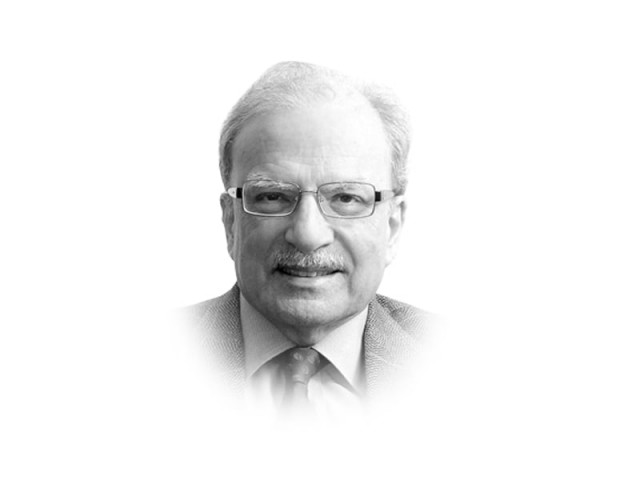Embrace, not reject the United States
Pakistan will need the US more than the US will need Pakistan.

As Vanni Cappelli, president of the Afghanistan Foreign Press Association, wrote in a long letter to The New York Times on October 31 that “the deterioration of the situation in Afghanistan has been the inevitable result of America’s continuation of the very dynamic that led to the September 11 attacks — hefty, decades-long military assistance to Pakistan, which it used to incite proxy militants to crush socio-economic reform at home and commit aggression against its neighbours.” This reading of Pakistan’s recent economic history is not totally accurate but the point is that this kind of thinking is receiving the attention of influential policymaking institutions. Cappelli also offers a solution to what he labels as America’s “Afghan-Pakistan woes”. He suggests: “Continued military and diplomatic engagement in South-Central Asia, with a truer aim of containing Pakistan’s ability to destabilise its neighbours and affecting a transition to real civilian rule there, is our best option. Such a policy would proceed not from triumphalist myopia but from tragic recognition and is the only course that will bring peace and security to Afghanistan, the region and America.”
The treatment meted out, a few days ago, to Imran Khan by the US immigration authorities when the former cricket star and now an influential politician was entering the US from Canada, did not help Pakistan-US relations. This treatment did not create many friends for America in Pakistan. This will further deepen the divide. That is unfortunate for the simple reason that post-Afghanistan withdrawal, Pakistan will need the US more than the US will need Pakistan. After the Americans have pulled out, their interests in Central and South Asia will be better served by maintaining close and friendly relations with Afghanistan and India. The Americans are interested in obtaining access to the fabulous energy and mineral riches of Central Asia. A Pentagon report estimated Afghanistan’s mineral wealth at over a trillion dollars. The Central Asian states have known reserves of gas and oil as well. America’s other geopolitical interest in the area is containing the rising China. That is better served by a close association with India. This logic, therefore, essentially marginalises Pakistan in the eyes of the policymakers in Washington.
But Islamabad must find a way of staying on the right side of America. This is for good economic reasons. For as long as the country is unable to generate a greater amount of domestic resource for investment and for as long as it fails to exploit the riches available from taking what should be its share in expanding international trade, Pakistan will remain dependent on external flows of capital. Foreign savings are needed to close the domestic investment-savings gap, as well as the gap between export earnings and expenditure on imports. In the past, America has played very important roles in helping the country with these two gaps. It has provided both direct assistance, as well as pressured institutions such as the International Monetary Fund to come to Pakistan’s assistance. With the palpable cooling of relations, help from America may not be as readily available as was the case during several balance of payments crises in the past. It is recognised in Pakistan that the country, as it moves towards another general election, will face a new balance of payments crisis. There will be only two ways of solving it. Islamabad could severely tighten its belt and thus slow down even more its tepid rate of growth. Or hope that a large flow of external assistance would be forthcoming to tide over the coming difficulties. The former approach would have serious political and social consequences. The latter approach would need setting relations with America on a less rocky course.
The large and prosperous Pakistani diaspora in the US could be of help as it was in countering the damage done by the Pressler Amendment, named after Senator Larry Pressler from South Dakota. This imposed severe sanctions on Pakistan as Islamabad continued its programme for developing nuclear weapons. At that time, a number of American citizens of Pakistani origin were able to put pressure on the US Senate to pass another amendment, eased the sanctions and eventually restored aid to Pakistan. The Indian diaspora, which is three times the size as the one from Pakistan, is now well-organised to play an important role for their country. Unfortunately, the Pakistani community in the US carries a heavy burden — that of some links with Islamic extremism, which have further eroded its latent political power. Those who have some influence over the making of public opinion must recognise that promoting a better relationship with the US is in the country’s interests. The reverse is not the case.
Published in The Express Tribune, November 5th, 2012.















COMMENTS
Comments are moderated and generally will be posted if they are on-topic and not abusive.
For more information, please see our Comments FAQ